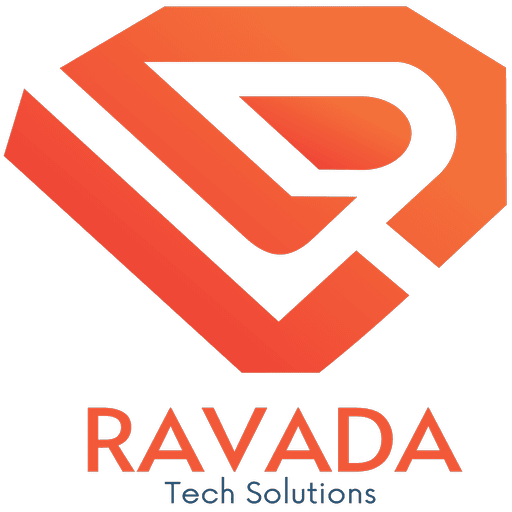7.Development of a Custom Device Driver for a Mid-Sized Manufacturing Entity
Technologies:
Device Driver, C, Python
Industry:
Manufacturing
Type:
Development, Support
Client Overview
The client is a mid-sized manufacturing firm specializing in industrial automation technologies. They manufacture bespoke machinery for automotive assembly lines, necessitating precise control over sensors, actuators, and motors. The organization encountered challenges integrating a new proprietary hardware component into its existing infrastructure due to the absence of a compatible device driver. This hardware component was integral to enhancing their machinery’s operational efficiency and precision.
Objectives
- Develop a bespoke device driver to facilitate seamless intercommunication between the proprietary hardware and the client’s control systems.
- Ensure driver compatibility with the client’s real-time operating system (RTOS).
- Optimize the driver for high throughput, low latency, and robust reliability in an industrial context.
- Provide comprehensive documentation and support to empower the client’s engineering team for ongoing maintenance and extension of the driver.
Requirements
Functional Requirements:
- Enable bidirectional communication channels between the hardware and the RTOS.
- Support real-time data processing capabilities with minimal latency.
- Implement robust error handling and recovery protocols.
- Ensure adherence to existing application programming interfaces (APIs) and middleware compatibility.
Non-Functional Requirements:
- High reliability with fault-tolerant mechanisms.
- Minimal resource consumption (memory and CPU utilization).
- Compliance with prevailing industry standards for industrial automation.
- Scalability to accommodate future hardware enhancements and upgrades.
Approach
- Requirement Analysis: Collaborated closely with the client to glean insights into their system architecture, hardware specifications, and performance criteria.
- Protocol Reverse-Engineering: Employed logic analyzers and protocol sniffers to dissect the hardware’s communication protocol.
- Modular Design: Architected the driver with modular components to enhance maintainability and scalability.
- Iterative Development: Employed an agile methodology to develop, test, and refine the driver incrementally.
- Rigorous Testing: Executed unit, integration, and stress testing under both simulated and real-world scenarios.
Development Process
Research and Planning:
- Analyzed the hardware datasheet and communication protocols.
- Defined the driver’s architecture and interfaces.
Implementation:
- Developed the core driver functionality utilizing C for optimal compatibility with the RTOS.
- Incorporated interrupt handling, memory management, and error recovery mechanisms.
Testing and Debugging:
- Implemented hardware-in-the-loop (HIL) simulation to validate driver performance under real-time conditions.
- Diagnosed and resolved issues about timing and resource contention.
Optimization:
- Reduced latency through the optimization of data transfer routines.
- Minimized memory footprint by refining buffer management algorithms.
Documentation and Handover:
- Provided exhaustive documentation, including API specifications and usage examples.
- Conducted training sessions for the client’s engineering team.
Strategies Followed to Achieve the Expected Outcome
- Collaborative Development: Established close collaboration with the client’s engineers to ensure alignment with system specifications.
- Prototyping: Developed a prototype driver to effectively validate communication protocols and hardware interactions.
- Continuous Feedback: Incorporated client feedback at every development phase to ensure the final product met all requirements.
- Risk Mitigation: Proactively identified potential risks (e.g., timing discrepancies, hardware incompatibilities) and implemented corresponding mitigation strategies.
Challenges Faced
- Hardware Complexity: Limited documentation for the proprietary hardware necessitated reverse-engineering of its communication protocol.
- Real-Time Constraints: The driver had to operate under stringent timing constraints to prevent disruption of assembly line operations.
- Integration: Seamless integration with the company’s legacy systems and RTOS was critical.
- Testing: Simulating authentic industrial conditions for validation testing was challenging due to the unavailability of a suitable test environment.
Business Outcomes
- Enhanced Efficiency: The deployment of the new driver enabled the integration of the proprietary hardware, leading to a 20% improvement in assembly line efficiency.
- Cost Reduction: The development of a custom driver allowed the client to forgo the costly replacement of existing systems, resulting in significant savings.
- Increased Reliability: The driver’s comprehensive error handling and recovery mechanisms contributed to a 15% reduction in operational downtime.
- Future-Proofing: The modular design facilitated easy adaptation of the driver for subsequent hardware upgrades.
Solutions Provided
- A tailored device driver fully compatible with the client’s RTOS and proprietary hardware.
- Comprehensive documentation.
- Ongoing technical support for driver maintenance and updates.
Key Takeaways
- Significance of Collaboration: Close collaboration with the client was pivotal in comprehending their requirements and delivering a tailored technical solution.
- Agility in Development: An iterative development approach enabled continuous improvement and adaptability to emerging challenges.
- Real-World Testing: Comprehensive testing in simulated and authentic environments ensured the driver’s operational reliability.
- Crucial Role of Documentation: Detailed documentation was essential for the client’s team to maintain and extend the driver effectively.
Technologies and Tools Utilized
- Programming Languages: C for low-level driver development, Python for automation and test script execution.
- Operating System: Real-Time Operating System (RTOS) for deterministic performance and timing.
- Development Tools: GCC compiler for code compilation, GDB debugger for interactive debugging, logic analyzers for signal integrity analysis, and protocol sniffers for communication analysis.
- Testing Tools: Hardware-in-the-loop (HIL) simulators for integration testing, oscilloscopes for waveform observation, and custom test benches designed for specific validation tasks.
- Version Control System: Git for efficient source code management and collaborative development.
- Documentation Framework: Doxygen generates API documentation, and Confluence is used for comprehensive project documentation.
Technical Insights
The driver architecture employs a layered design paradigm that distinctly separates hardware abstraction layers from core application logic, facilitating modularity and enhancing maintainability for future upgrades. Notable technical features include:
- Interrupt-Driven I/O: Achieved real-time system responsiveness through reduced reliance on polling mechanisms.
- DMA (Direct Memory Access): Optimized system performance by minimizing CPU intervention during high-speed data transfers, enhancing throughput.
- Error Handling Framework: Integrated comprehensive error detection and recovery strategies, including watchdog timers for fault monitoring and retry logic for transient error management.
- Thread-Safe Design Principles: Ensured safe concurrent access to shared resources, mitigating race conditions and data inconsistency issues.
Related Posts
Towards Excellence
Contact us to discover how you can maintain the best technological excellence with our solutions.

